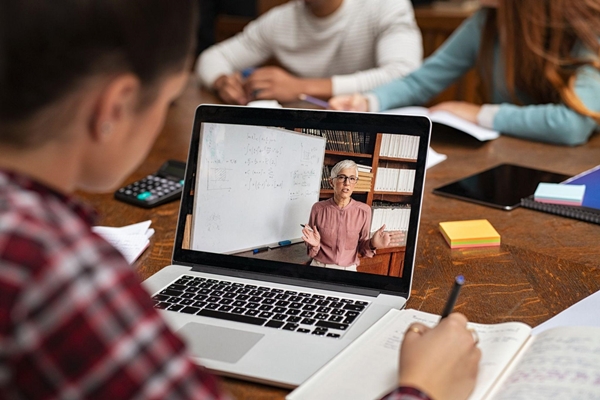 |
After the outbreak of COVID-19 in 2019, one of the most significant changes in the world is education. Known as “Zoom Classes,” online learning has become common as most countries still have more than 1000 positive cases per day. However, while a wealthy family can afford an electronic device used to attend online classes, some families don’t. Also, affordability is not the only issue: the quality of online learning has become a significant issue as well.
Online learning requires a strong internet connection. Physical books have been replaced by online pdfs, and classrooms are in zoom calls or google meets. To meet these replacements, students need to afford wifi and electronic devices. However, approximately 360 million young people do not have access, according to the International Telecommunications Union. As a result, people without access to the internet are falling behind others who can afford online learning. Education has now become a privilege. The educational gap has now increased due to the circumstances, and in the long term, the poorest families and students will experience setbacks in jobs, income, and health due to the lack of education.
 |
| Picture Credit: https://pedagoo.com/wp-content/uploads/2020/06/2250x1500_czy-warto-korzystac-ze-szkolen-online-ollh.jpg |
The educational gap is not only increasing between the poor and the wealthy. The gap between pre-COVID-19 students and online learned students is also increasing. The quality of education in online learning is greatly varying from in-person education. Especially for younger students, the quality of education and care are crucial. According to Changbok Shin, an Elementary school teacher, the academic performance for each student greatly differs based on the care they receive from the teacher. Because each student’s understanding is different, the teacher has to make sure no one is falling behind. But online learning creates barriers in doing this, causing increased gaps between students.
Online learning is inevitable. However, the quality of online learning can be improved if more public institutions focus on funding to provide the appropriate conditions for underprivileged students. What’s more, promoting in-person education while following the safety protocols will be the ultimate solution.
안중원 강남포스트 학생기자 webmaster@ignnews.kr
<저작권자 © 강남포스트, 무단 전재 및 재배포 금지>

 (재)강남문화재단, 타 기관과 교류·협력 협약 체결 활발
(재)강남문화재단, 타 기관과 교류·협력 협약 체결 활발


